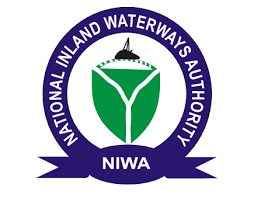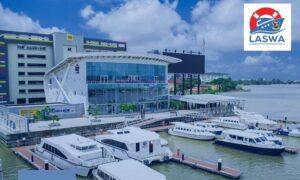Maritime stakeholders seek protection, rally support for fishery industry
Stakeholders in Nigeria’s Maritime sector have called for collaboration of efforts and support towards developing the fishery industry to a productive profile to boost economic growth in the Country.
The stakeholders who made the call following a meeting held in Lagos to brainstorm on challenges facing the fishery Industry and how to chart a way forward, noted the significance of coordinated efforts towards aiding fishers in the Country.
Such coordination, according to them, is significant to improve the livelihood of the stakeholders and also harness the potentials and opportunities of the blue economy.
In his remark, the Executive Director of the Nigerian Institute for Oceanography and Marine Research (NIOMR), Dr. Sule Abiodun, said that the aim of the stakeholders’ meeting is to really replicate the francophone legacies, saying that the Nigerian coast, which is about 860 kilometers and about 462 nautical miles, reflects the potentials of blue economy in the Country.
While speaking on the need to provide adequate security for fishermen, especially the artisanal and the commercials who supply 90 percent and 10 percent of the nations demand respectively, Abiodun noted that there’s need to train and retrain fishermen in the Country, so as for them to compete with the reality of development across the globe.
The Director who urged the Federal Government to empower the Nigerian Navy in terms of area surveillance, modern equipment and daily overflying, stressed that bringing all stakeholders together, in addition to data collections, and information sharing are important in making the industry a profitable one.
In his submission, he said: “The purpose of this meeting is to really replicate what the francophone members are doing, our coast is very bigger than six of the its nations, and if you look at our coast territorial wise, it is 860 kilometers and that’s about 462 nautical miles, and that’s where our blue economy lies.
“Under it (the blue economy), you won’t be surprise that we have crude gas and we have fish, and today we’re discussing fish, there’s no type of fish that you won’t get in Nigeria. There’s no specie of fish we’re talking about that we don’t have in this country and that’s why we’re talking about fishery governance and fishery management system.
“We need to look at it because of so many vessels visiting and harvesting in Nigeria. We need to look at the illegal, unreported and unregulated (IUU) fishing, as well as bringing all the stakeholders together.
“Particularly, the essence of this meeting is about commercial and also artisanal; don’t forget that the artisanal supply forms about 90 percent of our demands while the commercials supply the remaining 10 percent.
“We must ensure they have security, that is the reason we must look into illegal, unreported and unregulated (IUU) fishing. The vessel monitoring system is so important to us. We need to train and retrain all our fishermen.”
Submitting that bringing all the agencies together in terms of data collection, and information sharing are very important, he mentioned that “infact government should empower the Nigerian Navy more, area surveillance, daily overflying because if you look at the MCS, it is not about arresting; it’s all about deterring, not allowing it to happen.”
Representing the Nigerian Navy in the meeting, Commodore Gideon Kachim, said the Navy is ready to participate as a strong stakeholders in performing its statutory duties to allow fishery thrive on water and protect them from any form of illegalities across the ocean.
The founder, Nigerian Women in Agricultural Research for Development (NiWARD), Professor Stella William, said the purpose of the meeting is to begin a dialogue on how to impact on the lives and livelihood of fishers, especially the small scale stakeholders known as the artisanal fishers.
Stakeholders at the meeting includes, representatives from the Department of Fisheries and Aquaculture in the Federal Ministry of Agricultural and Rural Development (FMARD), Fisheries Society of Nigeria (FISON), and the Lagos State Ministry of Agriculture, among others.




